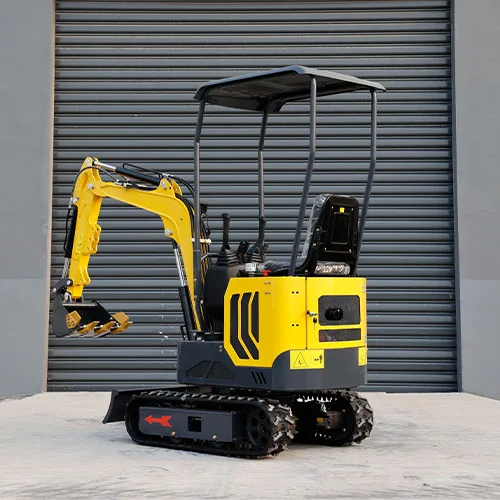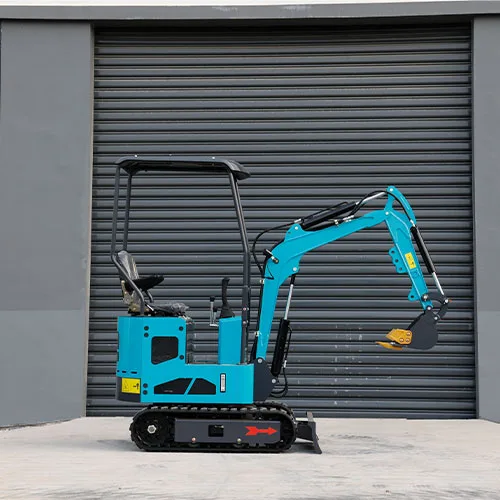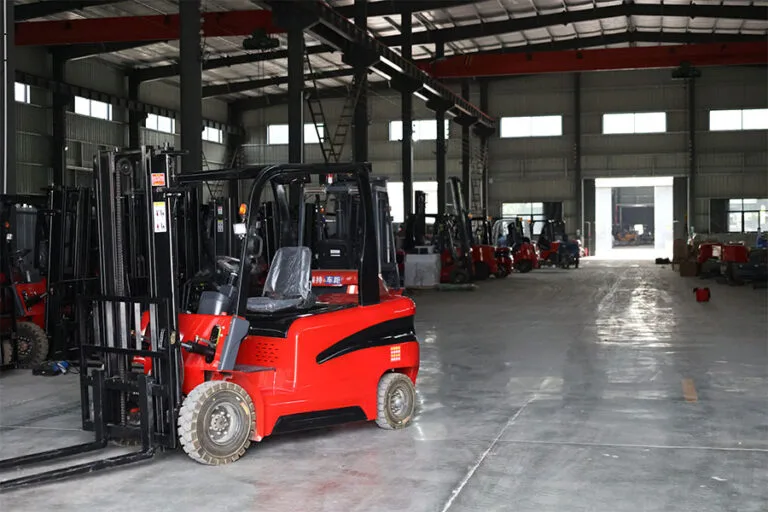I’m thrilled to have you here! Before we dive into the content, let’s stay connected. Join me on my social media platforms for more insights, community engagement, and regular updates. Here’s where you can find me:
📌 Facebook: Shandong Huaying International Trade Co., Ltd.
Now, let’s embark on this journey together. I hope you find the content here not only insightful and engaging but also valuable to your interests. Let’s learn, grow, and connect!
Table of Contents
Introduction


Hydraulic excavators have become a cornerstone of modern construction, mining, and infrastructure development. As industries continue to seek efficiency and performance, the demand for the best hydraulic excavators is steadily increasing. However, choosing the right model and maintaining it for optimal performance requires informed decisions and strategic planning.
This article highlights four essential tips for selecting and operating the best hydraulic excavators. Whether you’re a construction manager, a fleet operator, or a procurement professional, these insights will help you maximize the value of your investment.
Tip 1: Choose the Right Size and Specifications for Your Needs
One of the most important factors in selecting the Best Hydraulic Excavators is identifying the correct size, weight class, and configurations for your specific operations. Not every excavator is created equal. Some of the Best Hydraulic Excavators are optimized for urban infrastructure projects, while others are built for mining, trenching, or general contracting.
Key Factors to Consider:
- Operating Weight: Mini to large-size classes help categorize the Best Hydraulic Excavators by job requirement.
- Engine Power: The Best Hydraulic Excavators offer powerful engines to ensure high digging performance.
- Digging Depth & Reach: Projects requiring deeper or wider excavation need the Best Hydraulic Excavators with longer arms or boom extensions.
- Attachments: Versatile compatibility is a hallmark of the Best Hydraulic Excavators, enabling them to work with breakers, augers, thumbs, grapples, and more.
By selecting the Best Hydraulic Excavators that match your application, you enhance worksite efficiency and minimize downtime and maintenance issues.
Tip 2: Prioritize Fuel Efficiency and Emission Standards
Modern job sites demand machines that are both environmentally friendly and fuel-efficient. The Best Hydraulic Excavators today come with optimized engines and intelligent hydraulic systems that reduce fuel consumption and lower emissions.
Benefits of Fuel-Efficient Hydraulic Excavators:
- Lower Operating Costs: Improved engines and intelligent hydraulic systems significantly cut fuel consumption, saving money over time.
- Sustainability Compliance: Reduced emissions help your company stay compliant with environmental standards and may even unlock government incentives.
- Longer Engine Lifespan: Efficient machines often run cooler and cleaner, which extends component life and reduces maintenance frequency.
- Better Return on Investment: Lower operational costs and longer service life lead to better long-term value.
Pro Tip: Look for features like auto-idle or eco-mode that automatically adjust performance based on workload, further improving efficiency.
Tip 3: Consider Advanced Hydraulic and Control Technologies


Technological innovation has transformed the capabilities of today’s hydraulic excavators. If you’re searching for the best hydraulic excavators, it’s wise to consider how modern features can improve safety, precision, and productivity.
Key Technology Features to Look For:
- Load-Sensing Hydraulics: Automatically adjusts hydraulic flow and pressure based on the task, resulting in smoother operations and reduced fuel use.
- Auto-Idle and Auto Shutdown: Saves fuel and reduces engine wear by automatically adjusting engine speed or shutting off during periods of inactivity.
- Telematics Systems: Enable remote monitoring of equipment health, fuel consumption, location, and work hours, helping you make informed maintenance and utilization decisions.
- Operator Assist Features: These may include swing priority, boom/stick speed adjustment, grade assist, and digital depth control—tools that boost accuracy and reduce operator fatigue.
Why It Matters:
These technologies enhance not only performance but also operator confidence and safety, especially in high-stakes or large-scale projects where precision and uptime are critical.hance job site efficiency, especially when operating in time-sensitive or high-volume environments.
Tip 4: Understand Maintenance Needs and Lifecycle Costs
A high-performing hydraulic excavator is a significant investment—not just in upfront costs, but also in ongoing maintenance, fuel, parts replacement, and potential downtime. Understanding the total cost of ownership (TCO) is key when evaluating your options.
Consider the Following:
Reliability Record: Consult user reviews, performance history, and uptime statistics. A slightly higher upfront cost may pay off in reduced breakdowns and fewer service calls.
Ease of Maintenance: Look for features like ground-level service points, onboard diagnostic tools, and modular components that simplify routine tasks.
Availability of Spare Parts: Machines from well-established brands typically have a more accessible parts supply chain, which can greatly reduce downtime during repairs.
Support Network: Does the manufacturer or dealer offer quick-response service, extended warranties, or maintenance packages? These can significantly lower unexpected costs.
Mid-Article Table: Key Comparison of Best Hydraulic Excavators Features
| Feature | Benefit | Impact on Productivity |
|---|---|---|
| Load-sensing hydraulics | Better control and fuel efficiency | High |
| Tier 4 Final Compliance | Meets emission standards | Medium |
| Telematics System | Real-time monitoring and analytics | High |
| Quick Coupler Compatibility | Fast attachment changes | High |
| Operator Comfort Features | Reduced fatigue and improved precision | Medium to High |
Understanding the importance of each feature can help you align machine capabilities with business goals and operational needs.
Conclusion
Investing in the best hydraulic excavators requires more than just comparing prices or looking at horsepower. It involves a strategic approach—evaluating specifications, embracing modern technologies, optimizing fuel use, and preparing for long-term ownership.
By applying these four essential tips, you’ll not only extend the life of your machine but also improve productivity, reduce costs, and ensure greater ROI for your construction projects. As the demand for reliable and eco-friendly solutions grows, choosing the right excavator has never been more important.
FAQ
What defines the best hydraulic excavators?
The best hydraulic excavators are machines that balance power, efficiency, technology, and reliability. They meet industry standards, offer compatibility with various attachments, and provide long-term value.
Are compact hydraulic excavators suitable for major construction projects?
Compact models can be effective in specific tasks like trenching or urban projects, but for large-scale operations, full-sized hydraulic excavators offer better power and capacity.
How often should hydraulic excavators be serviced?
Routine maintenance schedules vary by manufacturer, but regular checks—usually after every 250 to 500 hours of operation—are recommended.
Do fuel-efficient models really save money?
Yes, fuel-efficient excavators lower operational costs significantly over time, especially in high-use environments.
What attachments work best with hydraulic excavators?
Common attachments include buckets, breakers, augers, grapples, and thumbs. Ensure compatibility with your machine before purchasing.



